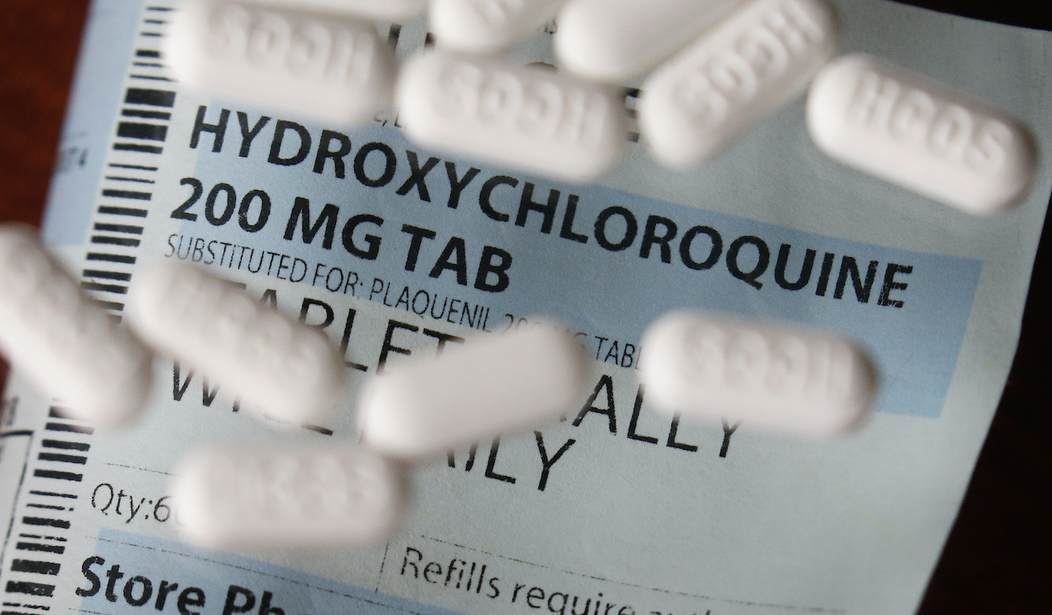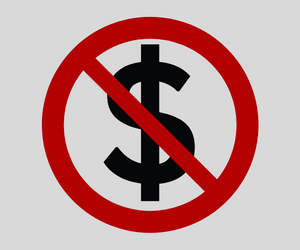The FDA announced today that it had revoked the “compassionate use” status of hydroxychloroquine. The drug, first given for malaria and now used to treat rheumatoid arthritis and lupus, has been under constant assault from the media and Democrats. Mostly because President Trump expressed hope that it would be effective in fighting COVOD-19.
Hydroxychloroquine and Severe COVID-19
Compassionate use was directed at end of life care. It permitted doctors to provide the drug to people with severe COVID-19 in the hospital. This was also at a time when it was assumed that most of these patients were suffering from severe viral pneumonia.
Since the early days of the pandemic, physicians have learned that is not true in many cases. Rather, the virus causes an overreactive immune response called cytokine syndrome. This has changed the treatment of severe illness caused by COVID-19. According to the Wall Street Journal:
We now know, for instance, that deaths among severely ill patients often result from an overreactive immune response known as “cytokine storms” as well as systemic blood clots. The Food and Drug Administration this week approved a new blood test by Roche that measures levels of the inflammatory-causing protein interleukin-6 and can help predict patients at risk for cytokine storms. Using drugs to break up blood clots and calm down the immune system earlier can prevent severe cases from turning deadly.
Hydroxychloroquine was never meant to treat this syndrome. And it is the cytokine storm that was responsible for much of the respiratory distress that led to being put on a ventilator. It would certainly be of very little use if a patient was already on a ventilator due to this kind of severe immune response.
How Hydroxychloroquine Works
This is evident if you know how the drug works:
It may also surprise you to know that hydroxychloroquine is being investigated as an adjunct therapy for cancer patients undergoing chemotherapy, radiation and hormone therapy. In these studies that you find the primary reason it was likely investigated as part of a combination therapy for COVID 19.
It is one of very few available drugs that inhibits autophagy, a mechanism associated with its anticancer properties. However, note that Chloroquine has other properties as well that may be very well related to anti cancer mechanism, such as zinc ionophore, and others.
So what does this mean? An ionophore is an escort of sorts. It binds to certain ions and basically escorts them across the cell membranes in the body. In this case, it holds the door of the cell membrane open to let more zinc in.
Zinc is well documented to be able to interfere with the replication of RNA viruses inside human cells. COVID-19 is an RNA virus. Research conducted by the NIH in 2010 on COVID-19’s first cousin, SARS, showed zinc indeed blocked the virus’ replication in a test tube.
Further, no early adopter of the treatment regimen, originally studied in both China and France, suggested this combination would work in advanced disease. Every single doctor recommending it said two things. First, give the combination early and outpatient. Second, hydroxychloroquine and zinc needed to be given together. Some added a third drug, azithromycin, which has mild anti-inflammatory effects.
The goal of the treatment is to slow down virus replication so the body’s immune system can combat the disease more effectively. The lower the viral load, or the number of virus particles in the body, the easier it is for a patient to clear.
The Stupidity of It All
None of this research is new. It is because of previous studies that doctors in China and France decided to try the drugs in the first place. It was touted in the media as a potential treatment before the president’s comments. However because President Trump mentioned it, it simply had to be a problem. I waited weeks for Dr. Fauci or someone in the FDA to speak up. The science is there. Of course, they never did.
The correct study of the hydroxychloroquine and zinc would be to give the medication outpatient and monitor hospitalizations rates in cohorts with specific preexisting conditions and specific age groups. If the rate of hospitalization is lower than those not in treatment in a statistically significant way, that should serve as an indication it is effective in preventing severe disease.
One of the first doctors to use the drug combination for COVID-19 was Dr. Vladimir Zelenko. He did not provide the treatment until a patient experienced mild shortness of breath. Out of 699 patients, only one required COVID-19 related hospitalization. This was called anecdotal at the time. But there has been no study to attempt to replicate his findings.
Doctors who have used the drug and found results similar to Dr. Zelenko can and likely will continue to use hydroxychloroquine and zinc off label. This practice is common for any number of drugs currently available.
The sustained and completely fact-free freakout by the media about a drug that has been in use for 65 years was beyond inappropriate. Especially when it is used routinely and long term by millions of patients worldwide. It also may have robbed Americans of an inexpensive and effective way to prevent severe COVID-19.
This is why politics and ideology have no place in medicine.












Join the conversation as a VIP Member